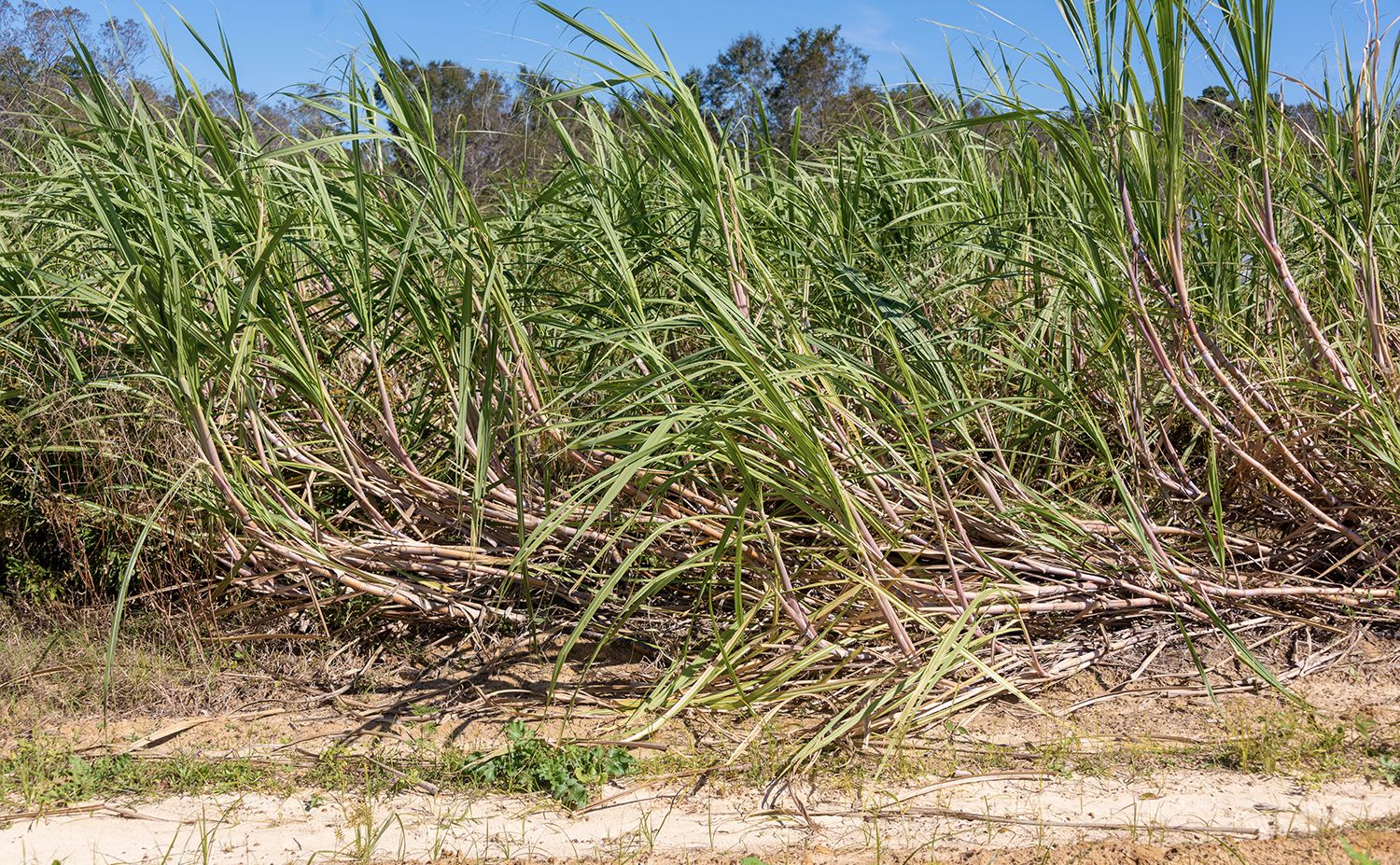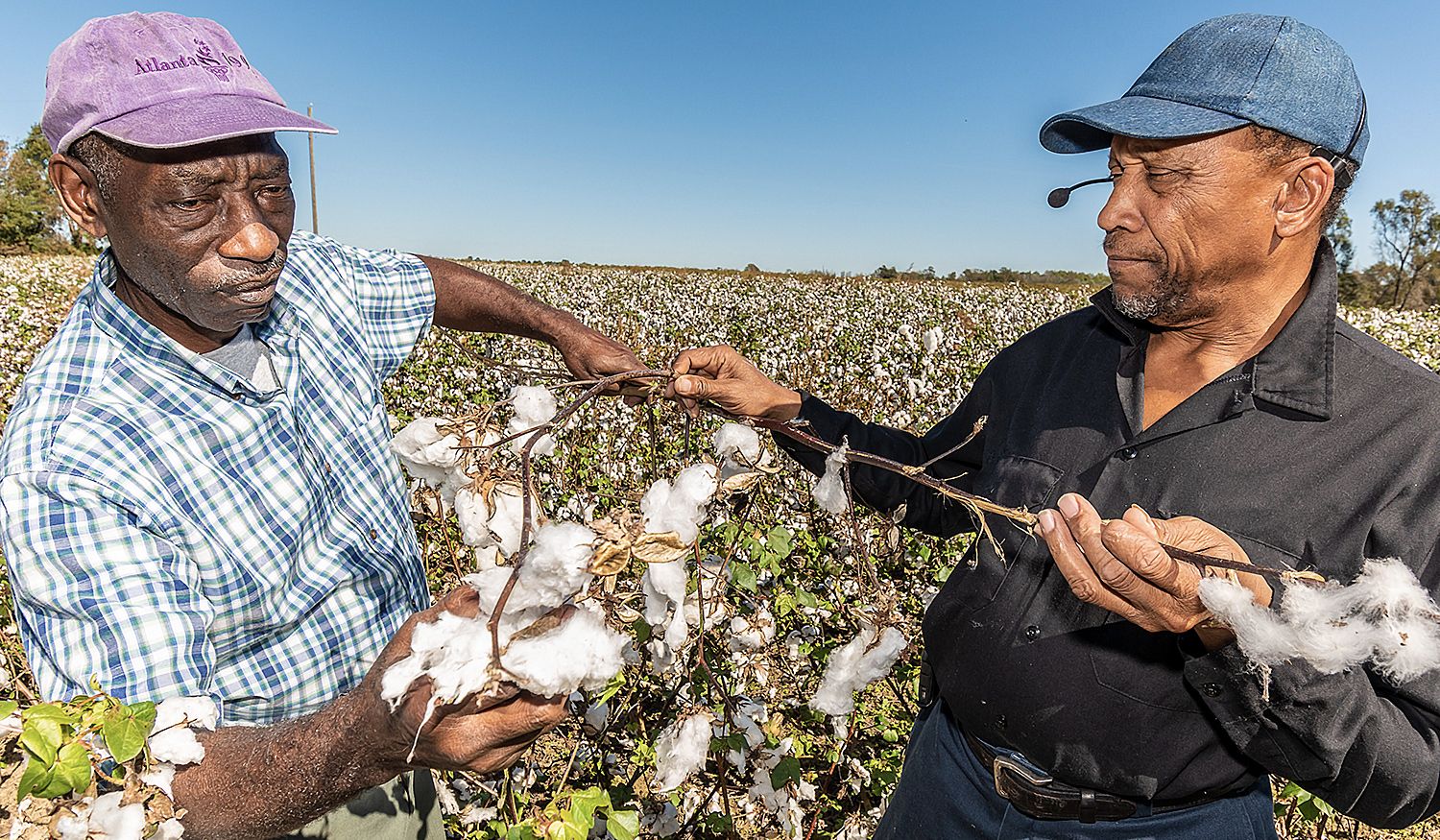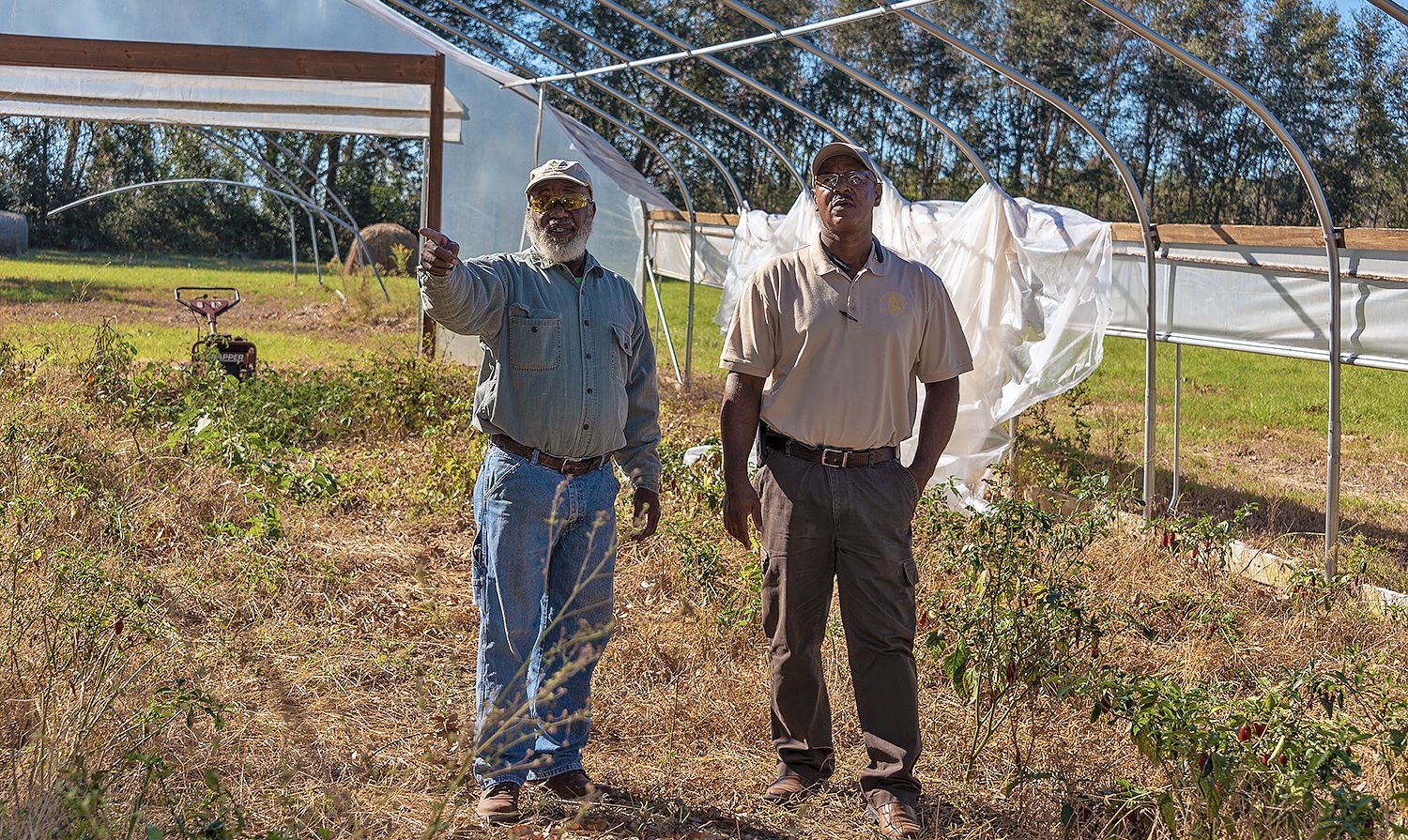When Hurricane Michael tore into Georgia in 2018, it left a path of destruction in its wake, causing a $2 billion loss of crops, timber, livestock and poultry. The storm had an apocalyptic effect on Georgia’s $73.3 billion agriculture industry.
Clients served by Fort Valley State University’s Cooperative Extension Program in southwest Georgia and parts of middle Georgia turned to county agents for help during this natural disaster.
Charlie Grace, county Extension agent serving Dougherty, Lee and Worth counties, relishes his role as a source of information for farmers and homeowners seeking relief.
“With my knowledge of U.S. Department of Agriculture (USDA) programs, I can share on a one-on-one basis and go more in depth into what qualifications farmers need to meet and help them restore their operations,” Grace said.
In Dougherty County, Alfred Greenlee suffered damage to numerous structures on his farm including his home, high tunnel hoop house, barns and newly installed fencing. Greenlee knew that the hurricane would be at least a Category 4 (130-156 mph winds) but decided not to evacuate.
“Michael was scary. It had a real impact on this area, and to sit through it was a real challenge,” Greenlee said.
The southwest Georgia farmer said he is very appreciative of the service he received from Grace and FVSU Cooperative Extension. “Mr. Grace checked on me and came out to help me do an assessment of the farm and the damage. I think it’s real great to have a support base like Fort Valley State University and an Extension agent like Charlie Grace,” Greenlee said.
Grace assessed Greenlee’s losses to total $30,000-$50,000. He said the farmer would qualify for several relief programs through the USDA’s Farm Service Agency (FSA), Natural Resources Conservation Service (NRCS) and other federal programs.
Worth County brothers John L. Green and Johnny M. Green, owners of Green Family Farms, also experienced Michael’s fury. When John Green heard Hurricane Michael was heading his way, he wasted no time evacuating. “I got out of that mobile home and stayed with my daughter,” said Green, who took refuge at her house in Sylvester.
Upon returning to their 65 acre farm the next day, the Green brothers discovered damage to their sugar cane, broccoli and collard green fields. The Green’s hoop houses and two pecan trees also suffered damage. Grace assessed the Green’s losses to total more than $40,000, qualifying them for USDA-FSA assistance.

Grace informed the Green brothers they would be eligible for federal relief. They hope to have their farm operation running at full speed mid-2019.
In Macon County, Oglethorpe farmer Willie Joe Daniels thought Hurricane Michael would lose its strength before coming to his area, but that was not the case. The morning after the storm, he checked his 25-acre cotton field only to find devastating results.
“I was very hurt. It seemed that this year we got rain on time, and it looked like we were going to have a pretty fair crop this year,” Daniels said.
Instead of a bumper harvest, the Macon County resident found most of his cotton on the ground, and he estimated that he lost more than 80 percent of his crop. Daniels did not despair and turned to FVSU’s Macon County program assistant, Ricky Waters, to seek advice about how to cope with crop loss.

“We did an assessment of Mr. Daniels’ cotton and after it was finished, we completed the proper forms to submit for assistance to the USDA and FSA,” Waters said. The FVSU program assistant said Daniels will qualify for the Emergency Conservation Program (ECP), which will cover 75 percent of his cropland.
Waters said Daniels also qualifies for the Tree Assistance Program (TAP). This USDA-FSA program provides assistance to growers who experienced losses from natural disasters.
Despite the devastating damages, Daniels plans to rebound with the knowledge and help provided by Waters and FVSU’s Cooperative Extension Program.
“Next year, I’m going to get with Mr. Waters and try to expand to 50 to 60 acres of cotton,” Daniels said.
For more information about farm disaster relief programs, contact FVSU’s Cooperative Extension office at (478) 825-6296.

